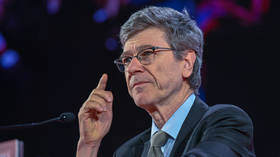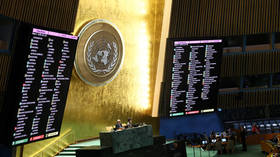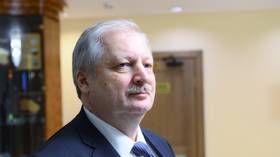Germans told to prepare for nuclear emergencies

Residents in Germany must make preparations for nuclear emergencies, the President of the Federal Office for Radiation Protection, Inge Paulini, warned on Wednesday.
In an interview with Funke media group newspapers, Paulini pointed out that “radiation does not stop at the borders,” and claimed that the ongoing military conflict between Moscow and Kiev has “made it clear to the general public that we have to be and remain prepared for a wide variety of nuclear emergencies.”
Russia has repeatedly insisted that it does not intend to use atomic weapons in Ukraine and has referred to its nuclear doctrine which only allows the use of such munitions in a retaliatory fashion or in the case the country is faced with an existential threat from conventional warfare.
Paulini also criticized Germany’s neighbors who have not phased out nuclear energy from their power grid. “On the contrary, many of our neighboring countries are planning new power plants,” she said, warning of the risks of accidents at these facilities, which could affect all of Europe.
Germany in recent years has launched an initiative to wean itself off of nuclear energy, with the country’s Green Party pointing to the potentially catastrophic risks associated with producing it. The nation only has three operational nuclear power plants remaining after MPs voted in November to extend their operations until April 2023 in light of the ongoing energy crisis in Europe.
Meanwhile, vice president of the Bundestag and FDP member Wolfgang Kubicki has blasted the government’s refusal to revise its overall approach to nuclear power plants and has warned of a potential default unless something is done to address the energy crisis.
“We don't want gas and oil supplies from Russia any more, at the same time our ‘green’ friends are restarting coal-fired power plants, while preventing a reasonable extension of the life of nuclear power plants,” Kubicki said earlier this week.














